Photographs: Reuters Ishita Ayan Dutt
Nirupam Sen, former commerce and industry minister of West Bengal, was instrumental in bringing the Nano project to the state.
In his first interview since the recent assembly elections, he talks to Business Standard about the experience with the project, which made Singur famous.
Edited excerpts:
How did your government bag the Nano project?
It was an extremely difficult job. Automobile, I figured, was one sector which was growing in India. Almost all large automobile companies had set up units here, while domestic players were trying to expand.
Moreover, the sector has a cascading impact on the overall industrialization process.
. . .
'Nano plant would've changed Singur's complexion'
Image: Nirupam Sen, former commerce and industry minister of West Bengal.Photographs: Reuters
The single automobile factory in Bengal was dying. So, 2004 onwards, I started negotiating with the Tatas. Mr (Ratan) Tata was interested in doing something in the eastern region, but wasn't sure of the project.
When Nano came on the radar and I mooted the idea, he said we could think about it and suggested having an inspection of the sites.
From the second half of 2005, we started looking for land and zeroed in on Kharagpur. However, when the Uttarakhand facility came up as an option for them later, the price difference came out to be substantial due to the incentives provided by the government of India.
I think, it was just before the 2006 assembly elections, probably in February/March, that I went to Mumbai to meet Ravi Kant. He explained the price difference was the deciding factor, given the nature of the project.
. . .
'Nano plant would've changed Singur's complexion'
Photographs: Reuters
I took a risk at that point and told him we would compensate. Whatever the criticism, had the project actually happened, it would have changed the complexion of Singur and its surrounds.
Mother plant apart, the project involved 54 ancillary units, which meant enormous employment potential. People would have had the experience of seeing a modern industry.
Who selected Singur?
We showed Tata Motors six plots and they zeroed in on Singur. Actually, the land acquired for Telcon at Kharagpur was meant for Tata Motors. They had planned to set up a township there and, hence, the land requirement was higher.
But, then the location shifted to Singur. With no need to set up a township here, the quantum of land was reduced. It also benefited the company economically.
. . .
'Nano plant would've changed Singur's complexion'
Photographs: Reuters
The location was changed as (Ratan) Tata wanted to set up a world class factory that would help bring other investments to the state.
I did not oppose. A major criterion was proximity to the National Highway, one of the reasons why they selected Singur.
Also, it was just 30 minutes from the central business district. I had not anticipated the Opposition would take the agitation to a level that the company would have to pull out the project.
I thought it could be resolved through negotiation, which, of course, was a mistake.
. . .
'Nano plant would've changed Singur's complexion'
Photographs: Reuters
Mamata Banerjee had alleged the state government went back on the agreement arrived at Raj Bhavan. What exactly had transpired?
There was no question of going back. The issue was how to settle the issue, not to abandon it.
If we had agreed to give 400 acres, the project would not have happened. There were many letters from Tata Motors suggesting that they could not comprise on the land, which had been realigned once.
I had enquired from every corner of the country about how much land was required for an automobile factory.
During negotiations at Raj Bhavan, we had agreed to give away a maximum of 100 acres to settle the issue as 70 acres was with the West Bengal Industrial Development Corporation and was kept aside for rehabilitation.
. . .
'Nano plant would've changed Singur's complexion'
Photographs: Reuters
We wanted to have a commercial complex there and land losers having no alternative means of employment would have been provided space for starting some commercial business or renting it out. Tata Motors had also agreed to give 30 acres as environmental obligations such as greenery, water bodies, etc, had to be met.
But, there was a lot of confusion over the quantum of land the state government had agreed on during those discussions.
The last line of the agreement said the maximum possible land would be given, subject to the projects coming up. Thus, it was conditional.
A government committed to the project cannot go to the Raj Bhavan and agree to something tantamount to abandoning the project.
In fact, after seeing newspaper reports about the confusion, Tata Motors wrote to us the day after the agreement. And, the chief minister and I had to meet the press to convey what exactly had happened as the company was preparing to leave.
. . .
'Nano plant would've changed Singur's complexion'
Photographs: Reuters
Had Tata Motors not pulled out, do you think the political scenario in Bengal would have been different?
I think so. I didn't expect Tata Motors to leave after the initial determination they showed, which actually gave us the confidence that whatever be the case, they would wait out, at least for some more months. But, that didn't happen.
What do you think of the Singur Bill?
Our leader of the Opposition has already commented on the Bill. They had committed to the people and, hence, brought this Bill. I am not a lawyer, but there are many Acts in conflict with this Bill. Let us see what happens.
. . .
'Nano plant would've changed Singur's complexion'
Photographs: Reuters
There are unwilling farmers elsewhere in Bengal who want their land back now. Do you see the Bill having wider repercussions?
That is natural. I don't know how the government will respond to such demands.
At any time, did your government consider returning land to the unwilling farmers?
No, the question did not arise. The government had acquired the land for industrialisation. The character of the land had also changed. Our purpose was to set up industry.
The Bill states that vendors had not signed lease agreements with the government. Why didn't they?
Actually, there was a case in the court at that time and, hence, they took permissible possession. To an extent, it was also due to the uncertainties surrounding the agitation. But, they had all paid the premium.
. . .
'Nano plant would've changed Singur's complexion'
Photographs: Reuters
Critics say that the Left Front's arrogance cost it the recent assembly elections. How would you respond?
I don't know when have I shown arrogance.
I tried my level best not to be agitated or say something which might hamper the image of the state.
I have always tried to peacefully resolve things, but I can only speak for myself.

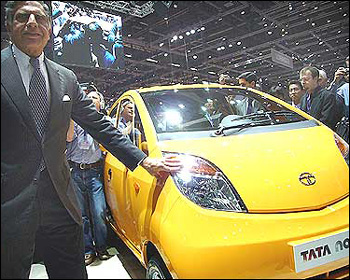
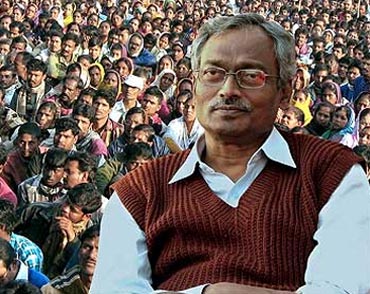
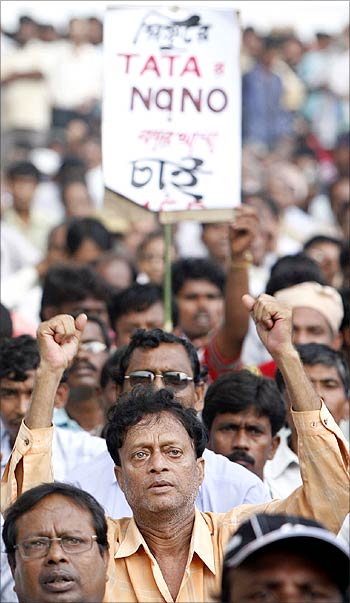
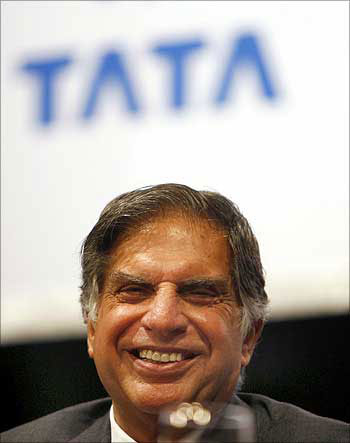

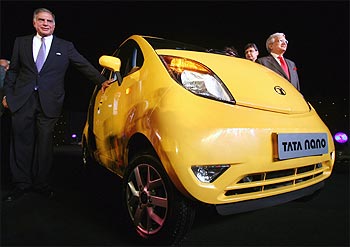
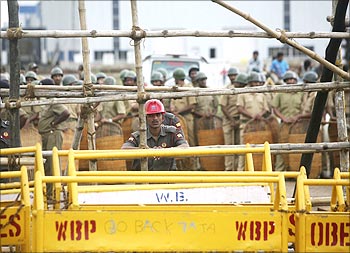
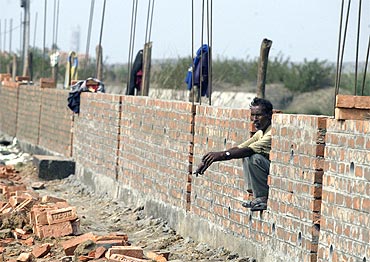
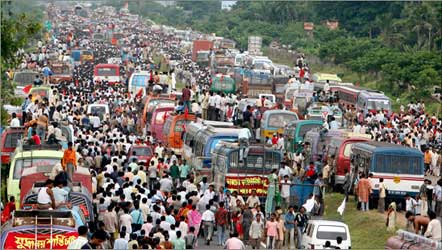

article